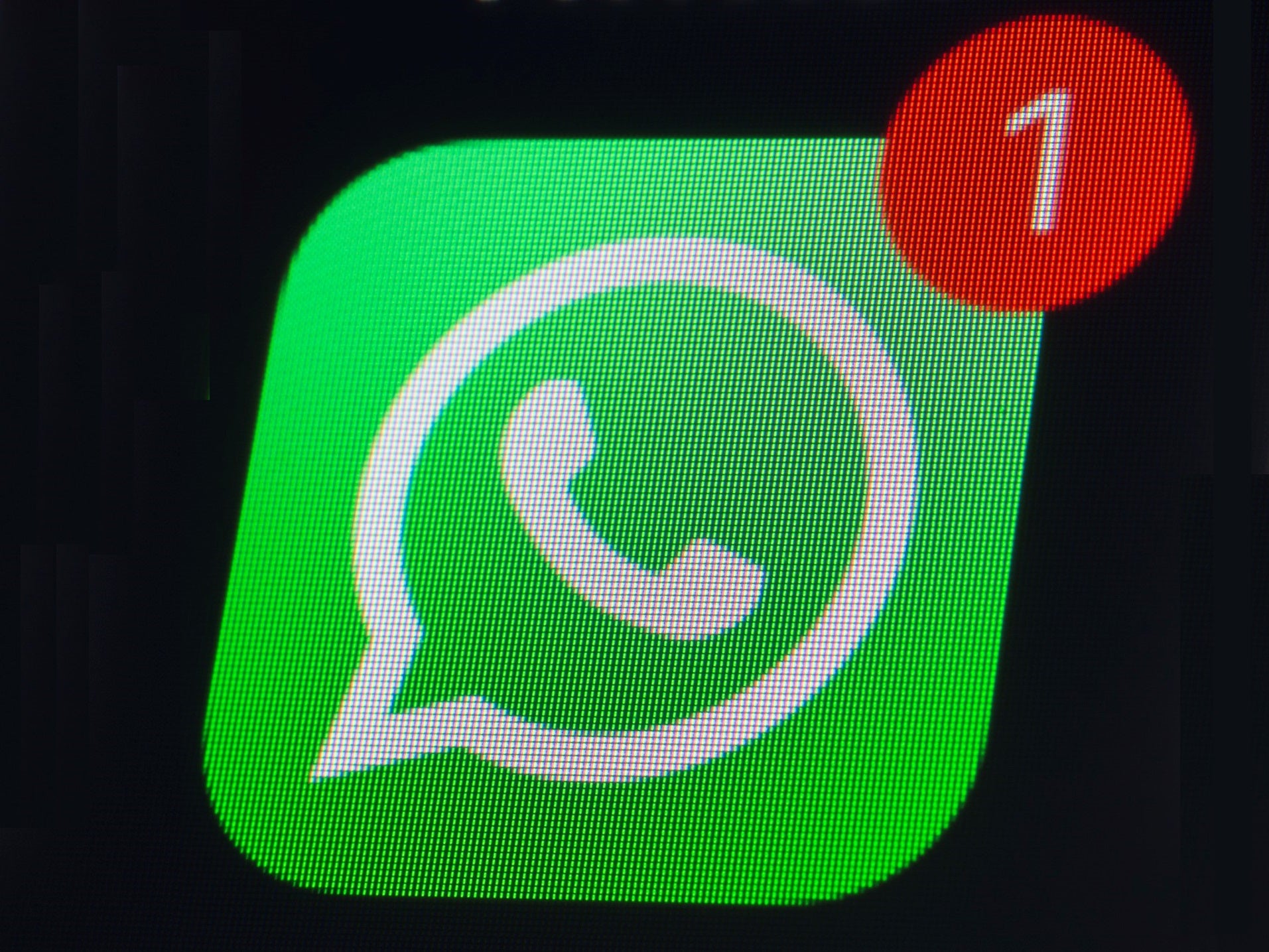‘Argentina is doing it’: Hoax WhatsApp message about virus on phones spreads across the world

Your support helps us to tell the story
From reproductive rights to climate change to Big Tech, The Independent is on the ground when the story is developing. Whether it's investigating the financials of Elon Musk's pro-Trump PAC or producing our latest documentary, 'The A Word', which shines a light on the American women fighting for reproductive rights, we know how important it is to parse out the facts from the messaging.
At such a critical moment in US history, we need reporters on the ground. Your donation allows us to keep sending journalists to speak to both sides of the story.
The Independent is trusted by Americans across the entire political spectrum. And unlike many other quality news outlets, we choose not to lock Americans out of our reporting and analysis with paywalls. We believe quality journalism should be available to everyone, paid for by those who can afford it.
Your support makes all the difference.A hoax WhatsApp message that warns people they could be hit by a "hack" is spreading across the world.
The message warns that users will receive a video file called "Argentina is doing it", that purports to be about the country's response to Covid-19. However the file actually takes over your phone in "10 seconds" when it is opened or even looked at, the message suggests.
There does not appear to be any such video, and it is very unlikely indeed that any such hack would even be technically possible.
The message seems to vary slightly and change as it is passed around, but revolves around the same basic themes: Argentina, a video that will infect your phone, and a warning sent over WhatsApp.
“They are going to start circulating a video on WhatsApp that shows how the Covid19 curve is flattening in Argentina,” reads one example. " The file is called ‘Argentina is doing it’, do not open it or see it, it hacks your phone in 10 seconds and it cannot be stopped in any way. Pass the information on to your family and friends."
Some versions suggest the video was mentioned on CNN, and that users should “be careful”. Others include a note of caution that the message might not be real but that it’s better to be safe than sorry.
The video is not real. There seems to be no indication that any video about Argentina’s response to Covid-19 is actually being circulated.
The warning that it could allow a phone to be hacked is also false. While there have been very rare cases of files that could cause unexpected behaviour on WhatsApp, videos sent by known senders should be largely safe – though of course they will take up space on your phone and potentially fill up your photo library.
The message appears to have been spreading at least since the summer, according to an article from Snopes posted in July, which also explained that the video does not seem to exist and that no scheme to hack phones could be found either.
As often with such WhatsApp messages, there is no malice on the part of the people sending it, who are just trying to keep their family and friends safe.
And as seems to be increasingly the case, the message does not seem to be a scam in the more traditional sense: it doesn’t actually ask anyone receiving it to do anything, just to avoid a message, and so it does not put people in danger.
WhatsApp’s own website warns about such hoax messages, and notes that they can often include many of the same tricks that the new one does. Such messages often include instructions to forward them on, for instance, and that people might be hurt if they don’t.
But it also notes that many similar hoaxes often include a more obvious scam, such as the suggestion that people could receive a gift or reward. And it also reminds people that the messages can come from unknown numbers, in which case the messages should be disregarded and the sender should be blocked.
For the most part, however, the Argentina message appears to be getting passed on from concerned loved ones, so there is no reason to block them. But the indication to disregard the message is the same: while nobody will be hurt by doing so, it could cause unnecessary worry, and there is no video to be afraid of in the first place.

Join our commenting forum
Join thought-provoking conversations, follow other Independent readers and see their replies
Comments